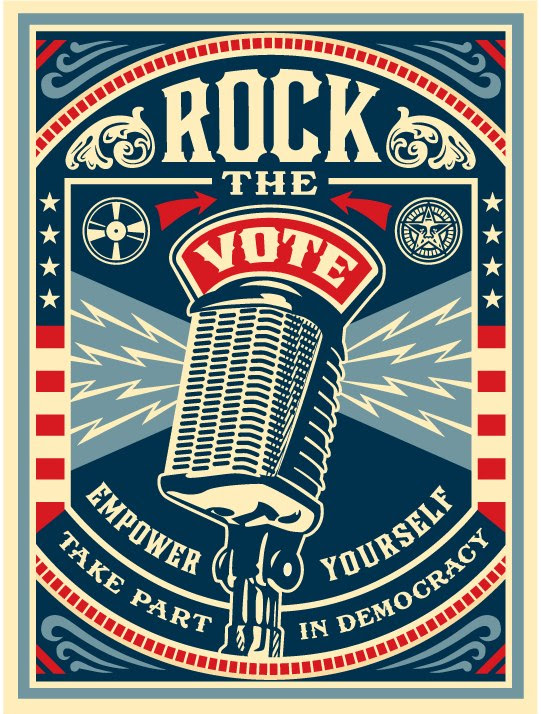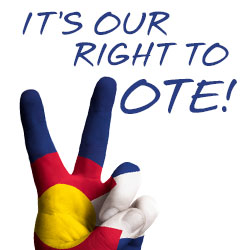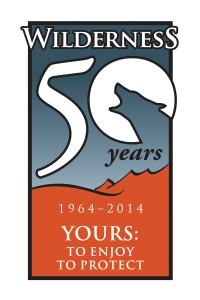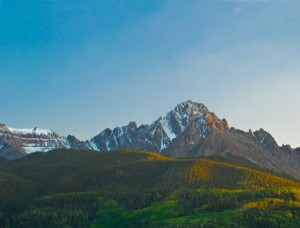MountainFilm in GJ
November 15 @ 7:00 pm - 10:00 pm
| $12.00Event Navigation
Click here for complete details on MountainFilm on Tour in Grand Junction on November 15!

Today’s the day. Vote now or forever hold your peace. Well…maybe not forever…but at least until next election.

It’s a BIG DAY and Coloradans are turning out to vote this Election Day. Many Colorado voters have already turned-in their ballots, and it’s down to the wire for the rest of our state’s 3.6 Million registered voters.
Be sure to VOTE by 7pm today (Nov 4)! Click here to see where.
You’re busy and life’s crazy-we get that. Yet a few minutes to vote could spell years of legacy. On the ballot are some big things, ranging from Genetically Modified Food to scores of races. Click here to read the full list of state-wide items in the official voter guide. Results are going to be counted over the next few days, and hopefully you’ll be a part of history. As votes are finalized, this link will give you results from the Secretary of State.
If you haven’t voted yet, get down to your local election center by 7pm today!
Monsanto is spending millions to frighten and mislead voters. Dig Deeper….Proposition 105 is about transparency and consumer choice.
 By now Monsanto and company have spent over $11 million on misleading ad campaigns in Colorado in attempt to confuse and frighten voters. Show Monsanto that your vote is not for sale. We have the right to know what’s in our food and Proposition 105 is a good first step for Colorado.
By now Monsanto and company have spent over $11 million on misleading ad campaigns in Colorado in attempt to confuse and frighten voters. Show Monsanto that your vote is not for sale. We have the right to know what’s in our food and Proposition 105 is a good first step for Colorado.
You may have seen the fancy TV ads and glossy colored mailers with slick messaging. This propaganda, designed to confuse and scare voters, is filled with misinformation and false claims. You don’t have to take our word for it. Channel 9 News featured one of the anti-labeling ads in a recent “Truth Test” segment. Click here to watch the whole 3-minute video. You can also check out the full “ad-rebuttal” statement from Right to Know Colorado.
It takes organized people to beat organized money. Here are 3 reasons to vote YES on 105 and 3 things you can do today to ensure we have the Right to Know what we feed our families in Colorado.
3 Reasons to Vote YES on Prop 105!
This is about informed consumer choice: It’s a label, not a ban. There is no requirement that farmers change their practices. The only requirement is that food be labeled just like it already is for many of our trading partners around the world.
Labeling works and does NOT lead to a spike in food prices. Consumers Union released a report that estimates the cost to consumers for labeling genetically engineered foods at just $2.30 per year. That’s less than a penny per day.
Coloradans should not be left in the dark. Current non-GMO and organic labeling is voluntary and covers less than 10% of available food products. According to Consumer Reports, many “Natural” products contain significant GMO content. Proposition 105 is a reasonable first step in Colorado and will cover 70% of foods found on Colorado shelves.
STILL HAVE QUESTIONS? Sign up here for a free Tele-Town Hall TONIGHT, Wednesday, Oct. 29th from 6:30-7:30 to “ask a Farmer how Prop 105 will affect them”
TAKE ACTION TODAY
In these last days leading up to the election, it’s not to late to make a difference and help get out the vote.
Here are 3 things you can do today!
1. Put out a YES on 105 yard sign. FREE and available in the WCC office in Grand Juntion and other locations around the state. Call Rachel at (970) 640-2246 to get yours!
2. Call swing voters today. Call Colorado voters using an automated online system and ask them to vote YES on 105. Phone/Internet connection required. Click here to sign up.
3. VOTE! Still haven’t mailed in your ballot? Drop it off today at a nearby location. Ballot lost in the mail? Visit a nearby voting center before 7:00pm, November 4th to get your ballot and cast your vote.
One week till Election Day!

Next Tuesday, November 4, 2014 is the BIG DAY! Our democracy will be in action and, hopefully, your voice will be heard.
It’s hard when nearly $100 Million has been spent in Colorado already, but there’s hope. Colorado voters can see the difference between corporate money and genuine free speech-even if we’ve been subjected to scads of advertising, mailers, and maybe a door-knocker or two.
Folks know an important election when they see one. There are US Congressional and Senate races; state legislative battles, multiple proposed ballot measures, plenty of local items, and more. A lot is happening and you better not miss out. Click here to see Colorado’s official Elections Page and Ballot Guide.
One of the proposed ballot measures is Proposition 105. If passed, people would have the right to know when food has genetically modified ingredients. WCC’s working hard to support consumers who are hungry for transparency in their food, even if Monsanto and other giants donate millions in opposition.
Maybe you’ve already voted early or by mail-in ballot. More Coloradans are doing it as a way to ease lines at the voting booth on Election Day (Nov4). Others prefer mail-in options because you aren’t rushed and decisions can be made at the kitchen table. Just make sure it gets to Denver on time!
You can still vote in person, either early or on Tuesday, November 4. Voting Centers have been set-up across Colorado, and there may be one near you. Click here for more info about where to vote in Colorado.
You are invited to attend a panel discussion on air quality in the Grand Valley, including information on current conditions, the future of citizen-based air pollution monitors, health effects of air pollution, and area rules and regulations on woodstove and open burning.
What’s in our Air? What We’re Breathing and Why It Matters will be held on Monday, September 22 at 7:00 pm at Whitman Hall (248 S. 4th St) in Grand Junction.
A follow-up to last year’s successful public forum, attendees will learn from local and regional experts what we’re breathing and why it matters to our economy, our kids and our environment.
The eye-opening event, moderated by Teresa Coons, Executive Director of the Math & Science Center and former member of the Colorado Air Quality Control Commission, features the following panelists:
The event and parking are free, and is sponsored by: Citizens for Clean Air, League of Women Voters of Mesa County and Alpine Bank.
For more information, contact Karen Sjoberg at 970-242-1054 or 970-628-4699.
Last week, Denver District Judge Robert McGahey ruled that the contested Piñon Ridge Uranium Mill license needs further review to ascertain if the application from Energy Fuels truly meets “all criteria under state law.” The order, which temporarily suspends the mill license, sends the license back to the Colorado Department of Public Health and Environment to determine its legality.
At the crux of the issue whether or not appropriate action was taken after a court ordered hearing that took place in November 2012. At that hearing, technical experts testified on behalf of Sheep Mountain Alliance (SMA) and Rocky Mountain Wild (RMW) to prove that Energy Fuel’s application was based on false information and that the environmental review was incomplete. WCC members also testified at the hearing, expressing concerns about the regional and cumulative impacts of the potential mill on public health, the regional economy, and lack of sufficient insurance money (bonding) to clean up the mill.
“This process has been mishandled by the state agency from the start and the district court has agreed, again”, stated Hilary Cooper, Executive Director of Sheep Mountain Alliance. “If the state chooses to continue this process, it will be talking action on a 2009 application for a project that will most likely never be built.”
SMA filed a lawsuit against the State of Colorado in February, 2011, after the first radioactive materials license was issued to Energy Fuels. The judge agreed with SMA’s challenge and ordered an independent hearing officer to conduct a hearing in November 2012.
The hearing officer did not take action on issues raised during the hearing. Instead, the hearing officer merely sent the file to the state with simple direction to proceed with the license consideration. The state then issued a second license to Energy Fuels in April 2013. SMA and RMW again challenged the decision and today’s ruling found that the hearing officer “failed to make a conclusion as to whether Energy Fuels application met all criteria for issuance of a license pursuant”.
In the meantime, Energy Fuels acquired the existing White Mesa Uranium Mill in Blanding, Utah and admitted that they did not intend to build the Piñon Ridge Mill due to lack of favorable economic conditions and the redundancy of two mills in close proximity. In addition, Energy Fuels has entered into a contract to sell the Piñon Ridge Mill property and other assets to George Glasier, the original founder of Energy Fuels, who is backed by Baobab Asset Management, Inc.
“The State has a clear choice here to deny the Energy Fuels application and require a future developer to reapply with an updated application, which must address the conditions on the ground at that time” states Cooper.
Although Glasier and his associates view the ruling in a positive light (according to a 9/10 Montrose daily Press article by Dick Kamp), Energy Fuels has been silent on the issue.
So the license is back in CDPHE hands, and the laundry list of concerns and defects in the mill license application go unanswered. We wonder if they ever will be addressed, or if the project is even relevant today, five years later. The application is dated and flawed and there is still no market for uranium. In the same article, even Glasier stated “…if the price stays forever where it is ($32/lbs), then there will be no mining and no milling.”
It is time to move on from the false promises of the Piñon Ridge Mill. As Jeff Parsons, the attorney representing SMA, put it, “It isn’t appropriate just to sell a uranium mill license on the public market to rich speculators and hold a community hostage; the whole thing is wasting everybody’s time.”
KREX TV-w/ video:
“The conservation group said it isn’t completely opposed to the idea of a coal mine, but is very skeptical over the potential long term effects.”
KKCO 11 News:
“A prospective coal mine land lease near Garfield and Mesa counties raises economic and environmental questions among Western Slope community members and one Grand Valley group aims to deliver some answers.”
By Gary Harmon, Grand Junction Daily Sentinel
Friday, August 29, 2014
The Bureau of Land Management does a poor job of pricing the coal it leases to domestic producers, which often sell it in other countries at sharply inflated prices, a University of Colorado law professor said Thursday.
“We’re providing a huge subsidy to the coal industry,” said Mark Squillace, director of the Natural Resources Law Center at the University of Colorado Law School.
Squillace spoke to about 45 people in a meeting sponsored by the Mesa County chapter of the Western Colorado Congress.
The organization handed out postcards that participants could send to U.S. Sens. Mark Udall and Michael Bennet, both Colorado Democrats, asking them to ask the Interior Department to halt coal leasing “until this badly broken program can be fixed!”
Halting leasing would affect leasing plans for the proposed Red Cliff coal mine in the Bookcliffs north of Fruita. The BLM is preparing an environmental impact statement on a proposed lease of 78 million tons of coal.
The leasing program undervalues domestic coal to the point that it goes for 36 cents per ton, as was the case with a recent Colorado lease, to mining companies, which ship it overseas to countries such as India, China and South Korea, where it’s heavily taxed, sometimes for more than $21 a ton, Squillace said.
“Why not set a minimum bid price, say $3 a ton, or $5 a ton?” Squillace said. “The revenues would be enormous.”
The idea that competitive bidding would drive up the lease price hasn’t worked out because as many as 90 percent of lease sales have only one bidder, Squillace said. Coal companies also limit competition by expanding existing leases by small amounts, preventing other companies from bidding.
The idea that as many as three companies would bid on the proposed Red Cliff Mine would be a welcome development, Squillace said.
The BLM doesn’t take into account the global price of coal when it considers the price it will demand, Squillace said.
Preventing low-return sales, however, is difficult, because the agency uses what Squillace termed a “secret sauce” in deciding what is the fair market value of its coal.
It doesn’t disclose the way that it operates, making it impossible to question the approach, Squillace said.
At the same time, coal is losing market share to natural gas, Squillace said.
Based on the cost per megawatt hour of electricity it generates, he said, “It’s quite clear that coal has lost its competitive edge.”
You did it! This November, Coloradans will have the opportunity to vote on Proposition 105. This measure would require labeling of foods produced using genetically engineered organisms (GMOs) in Colorado beginning in 2016. WCC members contributed to the more than 165,000 signatures turned into the Secretary of State to place this measure on the ballot.
Now is the time to educate our neighbors on this important issue and help Get out the Vote!
National polling has consistently shown that a majority of consumers want the right to know what’s in their food. Food labels already list and describe nearly every detailed component of food products. Adding a simple label for GMO ingredients would enable Colorado consumers to make informed decisions about what they feed their families. Vote YES! on 105.
Contact Rachel Zatterstrom at (970) 256-7650 or rachel(at)wccongress.org to get involved.
50 Years ago today President Lyndon B Johnson signed the Wilderness Act into law  & ushered in a new era of public land management. This historic bill established the National Wilderness Preservation System (NWPS) and set aside 9.1 million acres of wildlands for the use and benefit of the American people. Over the past 50 years as a result of America’s support for wilderness, over 100 million acres have been added to this unique land preservation system. Colorado itself contains over 3.5 million acres of wilderness within 41 separate wilderness areas.
& ushered in a new era of public land management. This historic bill established the National Wilderness Preservation System (NWPS) and set aside 9.1 million acres of wildlands for the use and benefit of the American people. Over the past 50 years as a result of America’s support for wilderness, over 100 million acres have been added to this unique land preservation system. Colorado itself contains over 3.5 million acres of wilderness within 41 separate wilderness areas.
WCC members have been tireless campaigners for wilderness in Colorado since the 1980s. From the Black Canyon of the Gunnison National Park to the Dominguez Canyon Wilderness, we have worked to establish and safeguard these areas for future generations. And today, half a century later, we stand ready to keep the Wilderness movement alive!
Protect the Wild San Juan Mountains!
 There are many active land preservation proposals across Colorado, including the San Juan Wilderness Act. This proposal will protect 61,765 acres of unique high elevation lands in southwest Colorado, including the 13,200 acre White house Addition to the Mt. Sneffels Wilderness. For a map of the proposed area and more details, click here!
There are many active land preservation proposals across Colorado, including the San Juan Wilderness Act. This proposal will protect 61,765 acres of unique high elevation lands in southwest Colorado, including the 13,200 acre White house Addition to the Mt. Sneffels Wilderness. For a map of the proposed area and more details, click here!
The San Juan Wilderness Act has broad community support, is sponsored by both Senators Udall and Bennet, and has passed out of the Senate Energy and Natural Resources Committee. However, we still need Rep. Tipton to become the House sponsor. Help us harness the momentum of the 50th Anniversary and get the San Juan Act introduced in the House! Contact Rep. Tipton today and ask him to protect the wild San Juan Mountains for the next 50 years and beyond!
Contact Representative Tipton today & urge him to sponsor the San Juan Wilderness Act!
Phone: 970-241-2499
Fax: 970-241-3052
Email: [email protected]
Address: 225 North 5th St, Suite 702
Grand Junction, CO 81501
Celebrate 50 Years of Wilderness with WCC!
We’ve got many upcoming events to honor & celebrate the Anniversary! Read on & hope you can join us!
September 25th: UVA House Party for Wilderness in Montrose!
October 5th: Walk for Wilderness: Fall Colors Hike into the San Juan Wilderness proposed expansion area.
October 12th: WCC Member Wilderness Photo Contest at the WCC Annual Meeting (learn how to submit a photo here!)
Nov 10th-29th: Colorado Wilderness at 50 John Fielder Photo Exhibit at the Mesa County Central Library in Grand Junction.
November 19th: Colorado Wilderness slideshow & presentation with John Fielder in Grand Junction @ CMU, 7pm. VIP event @ Kannah Creek, 5pm.
November 20th: Colorado Wilderness slideshow & presentation with John Fielder in Montrose @ Montrose Pavilion, 7pm. VIP event @ Pavilion, 5pm.
November 21: Colorado Wilderness slideshow & presentation with John Fielder in Paonia @ the Paradise Theater, 7pm
Would you like your own copy of the John Fielder Colorado Wilderness @ 50 Poster? Copies are available at the WCC office! Contact Emily at 970-256-7650 today!
More Information and Resources on the 50th Anniversary of the Wilderness Act:
Wilderness at 50 National Website & Conference
Wilderness at 50 National Facebook Page
Poem by Colorado Poet Laureate Dave Mason
Colorado Public Radio Series on the Wilderness Act
Daily Sentinel Op-Ed by Senator Mark Udall on the Wilderness Act
Earlier this month, Western Colorado Congress was sucker-punched by the fracking industry.
We shouldn’t have been surprised, but a Western Slope Colorado Oil & Gas Association (WSCOGA) spokesperson attacked WCC. The tirade appeared in the Sunday, August 10th edition of the Grand Junction Daily Sentinel, claiming our grassroots group was killing jobs, stopping progress and using double-talk.
The topic: WCC’s supposed support for “responsible” oil & gas drilling.
WSCOGA’s Executive Director David Ludlam said we were opposed to all drilling, and our push for better practices masks real intent. Because WCC wants smarter industrial practices, company accountability and investment in health, our members must have an “anti-modernity ideology”. Since WCC thinks drilling requires new guidelines, we were deemed obstructionists.
WCC is not backing-down from efforts to protect public health or conserve cherished landscapes. We know common-sense values like safety precautions, and clean air and water, are on our side. Drilling in Colorado is near record pace, anyway, and contrary to industry claims, companies enjoy robust profits. They can afford to pay a higher price for safer extraction of our natural resources.
Our response to Ludlam’s tirade, submitted for the WCC Board by WCC President Rein van West and Bob Arrington, was printed in the Sunday, August 24th Sentinel. Both pieces appear below.
You can keep the conversation going by submitting your own letter-to-the-editor to the GJ Daily Sentinel at [email protected]
Sunday, August 10, 2014
By David Ludlam, executive director of the West Slope Colorado Oil and Gas Association (WSCOGA)
Sensory adaptation: The phenomenon of human senses gradually numbed by over-exposure — an evolutionary gift to humankind. Were it not for the beauty of sensory adaption millions of parents would be institutionalized today. How else, if not for gradual dulling of auditory inputs, would we have survived ad nauseam playback of Disney’s 2014 theme song du jour, “Let it Go”?
Sensory adaption helps me professionally, too. Especially when it comes to local activists. Groups like Western Colorado Congress for years have obstructed energy development out one side of the mouth while proceeding to claim support for responsible drilling out the other. In the past this tactic made steam come from my ears. Today, through repetitious exposure, my ears luckily have adapted selective deafness to these hypocrisies. I do often wonder though: just how many times must the business community endure such patronizing insincerity?
In fact, just this month Western Colorado Congress put our community on notice that they are bringing yet another local drilling project to a screeching halt. Luckily for me, in the same breath, the organization put our minds at ease. While obstructing Fram’s local drilling project, the WCC was sure to note in the same announcement that they still “support efforts to tap the rich oil and gas resources of our region.”
Western Colorado Congress often makes these type of statements despite a track record of working to stop or slow drilling in Delta County, Roan Plateau, Vermillion Basin, South Shale Ridge, Thompson Divide, Rulison, White River National Forest and in countless other campaigns to make drilling in Western Colorado cost prohibitive.
When push comes to shove who really knows if activists will succeed in destroying Fram’s local investment. But their intent to do so begs a larger question: Has the organization ever supported a drilling project of any kind? Their standard pretext for stopping projects is old and predictable. So old, in fact, that we’ve all been sorta lulled into a here-they-go-again contagion. With a collective shrug of the shoulders, we assume confronting these people, whose only institutional accountability is to various strains of anti-modernity ideology, is a fool’s errand.
So if Western Colorado Congress in 31 years has never supported a single drilling project anywhere, then why do they feel the need to always say they support responsible drilling?
Environmental groups of all shapes and sizes as a standard practice hedge their activism claiming to support for at least some level of conditioned development. This is necessary so as not to alienate rational people in the middle. The practice is a deliberate and effective rhetorical device called abatement. To abate is to add meaningless statements after a provocation to reduce the impact of what was previously said. Example: “We the Western Colorado Congress here do by declare that we shall stymie, stall and stalemate Fram’s local drilling project, but we support efforts to tap Western Colorado’s rich oil and gas resources.” Huh?
Rather than accepting these absurdities at face value, we must begin questioning them. Inquiries should be made: Specifically, just where are these rich oil and gas resources they purportedly support “tapping into?” Township, section and range please!
Revenues from oil and gas development are supporting a rebuild of the Avalon Theatre through energy grants. Monies from oil- and gas-related taxes supported Grand Junction’s downtown revitalization effort during the last decade. Royalties from oil and gas development today are funding the town of Palisade in rebuilding Main Street. That in turn, supports agri-tourism, farmers’ markets and festivals. These and hundreds of other projects are assets we all love no matter our personal politics. All these projects in some way also rely on industrial development that must occur someplace, somewhere in and or around some community. Perhaps asking Western Colorado Congress just where they do support drilling might be more instructive than shooting at the straw men they levy on specific projects.
There is nothing wrong with WCC opposing oil and gas development — it’s America for heavens’ sake! But the local business community truly has limited patience for insult to intelligence.
The rational middle in the valley should be spared the sensory adaption required to stomach obligatory tag lines from activists claiming to “support responsible development.” When it comes to this tactic —WCC should simply Let it Go.
Sunday, August 24, 2014
By Rein Van West and Bob Arrington on behalf of WCC Board of Directors
Thanks to David Ludlam of the West Slope Colorado Oil and Gas Association for bringing up Western Colorado Congress (WCC) and our work in the Sentinel’s Sunday, Aug. 10 edition.
In the column, WCC was attacked and readers were given a skewed perspective on our work. We appreciate the opportunity to speak for ourselves, although we wish it were under different circumstances.
WCC is a grassroots nonprofit based in Grand Junction with more than 1,500 members across the Western Slope. From Steamboat Springs to the San Juan Mountains, we elevate local voices in natural resource and community decisions, including oil and gas. We are your neighbors working for conservation, sustainability, public health and social justice. We are farmers, teachers, nurses, royalty owners, janitors and retired professionals. Our coalition of volunteers is involved in public land management, energy development, local food and agriculture and other communitywide issues.
WCC empowers and encourages people to speak out. We listen to those who have been bullied or impacted by oil and gas, and help folks navigate the bureaucracy so their voice strengthens outcomes. For instance, we work with retirees from Battlement Mesa to ensure health protections before drilling starts near homes. We involve Whitewater ranchers and Grand Valley residents in fracking decisions along Grand Mesa. And, we team up with locals, farmers and irrigation districts to hold back drilling’s footprint in the North Fork Valley of the Gunnison River. In each example, it is only right to ask for industry constraint.
Until we transition to renewable energies, we need oil and gas but it has to be done right. That means updating rules, investing in monitoring sites, and establishing health protections. Drilling, fracking, flaring and other aspects of oil and gas pose legitimate threats to health, safety and the environment. Accidents happen, fires spark, and mitigation is not a dirty word. Responsibility means conserving sensitive areas, communities, farmland and waterways. Extra precautions are prudent, just like a speed limit sign helping travelers stay safe.
About 500 spills happened last year alone, and yet industry says policies from decades ago don’t need updates. Our state has over 50,000 active oil and gas wells, but only a handful of inspectors. Northeast Colorado’s historic flood of 2013 inundated oil and gas sites near floodplains, yet we have minimal rules protecting riparian areas and water systems. Adding insult to injury, a pipeline ruptured into a Garfield County tributary of the Colorado River, contaminating both water and air in 2013. It doesn’t take much to see we could have serious problems if we don’t usher in a new era of higher industry standards, better implementation and accountability.
WCC has significant support from Colorado communities, individuals and organizations. People want common-sense protections for their rivers and towns, not less. There’s no amount of advertising money that can change that. In fact, a Colorado College “State of the Rockies” poll says that more than 70 percent of Colorado voters would vote for a candidate seeking increased protections for public lands.
Responsible energy development means knowing about impacts, proactively mitigating issues, and ensuring additional measures where necessary. It means setting a high bar, and requiring companies to achieve necessary thresholds. Currently available technologies can reduce impacts and additional innovation can only add assurance. Recently, a handful of operators supported new air quality rules for their emission sources, as well. The resulting measures, with WCC participation, will cut leaks, including natural gas, which helps both air quality and company bottom lines. Western Slope COGA and friends could act similarly.
Rather than stick to relevant, ongoing policy discussions, a paid industry spokesperson attacked our stakeholder organization striving for regulatory improvements. A real conversation that leads to win-win solutions is one that exchanges name-calling and hyperbole for legitimate recognition of industry impacts. For example, state rules allow fracking as close as 500 feet from a house and 1,000 feet from a school or church. Unfortunately, there are exemptions to these and other rules allowing dangerous activities even closer.
Closing loopholes and holding companies to high standards is the right thing to do. True, industry provides financial benefits to surrounding communities, but companies can also afford investing in extra protections. Industry ultimately strives to achieve their shareholders’ immediate goals, nothing less. On the other hand, WCC represents member interests for multigenerational public health, safety and quality-of-life concerns. Oil and gas could collaborate much more, or they can continue trying to discredit groups representing everyday folks who want more say so over industry decisions affecting their lives.
We appreciate the chance to discuss the need to update oil and gas regulations in Colorado. Readers can learn more about Western Colorado Congress at wccongress.org
Big News This Week: Ballot measures related to oil & gas will not be on the Colorado ticket this November.
On the day petitions were to be turned-in, an 11th hour deal was struck for Ballot Measures 88 and 89 (two we liked) and two industry-sponsored initiatives.
Number 88 would have increased oil & gas “setbacks” to 2000 feet from homes and other occupied structures. Number 89 would have written into the state constitution a residents’ right to clean air, pure water and natural or scenic values. Both sounded great to WCC, and all summer long we teamed up with Coloradans for a Safe & Clean Energy to collect signatures and share stories from the West Slope oil & gas patch.
For better or worse, that’s all gone now. But we’ve still got a chance to make a difference: Click here to email Governor John Hickenlooper today!